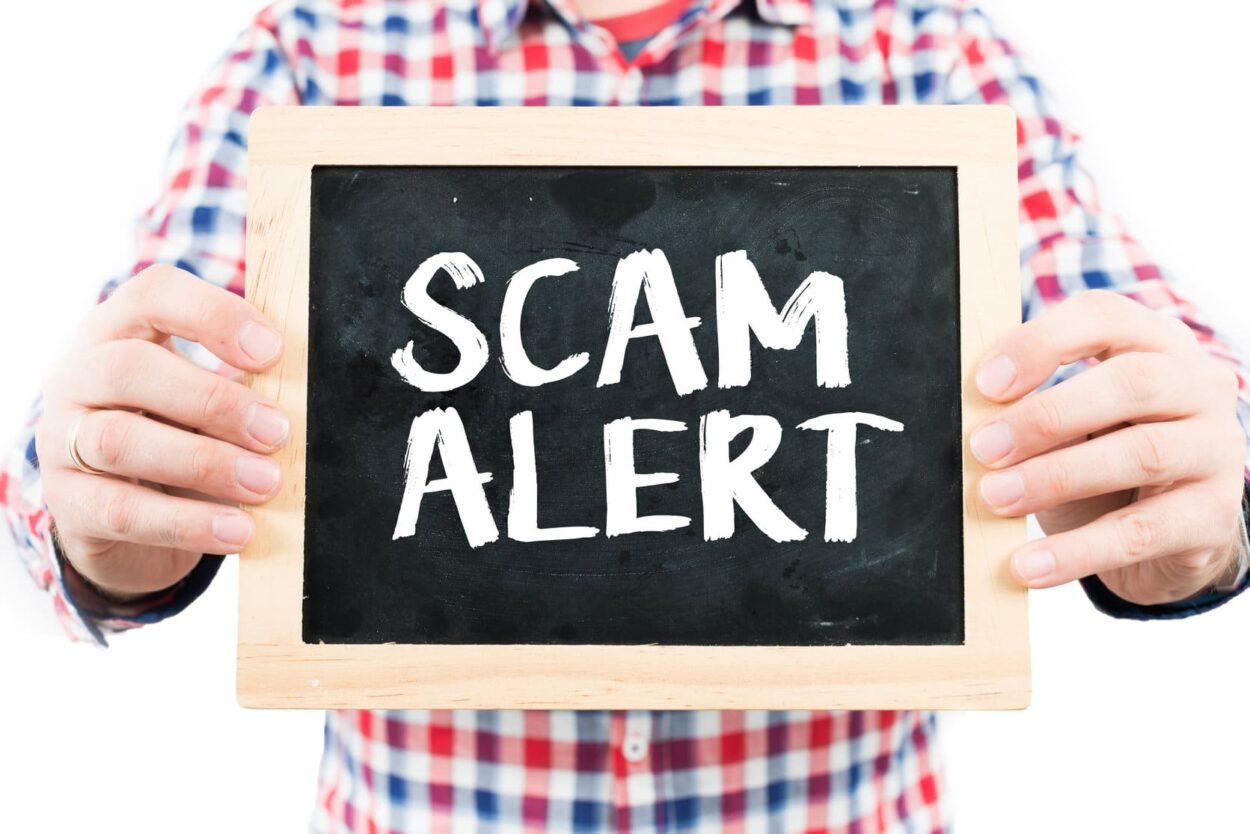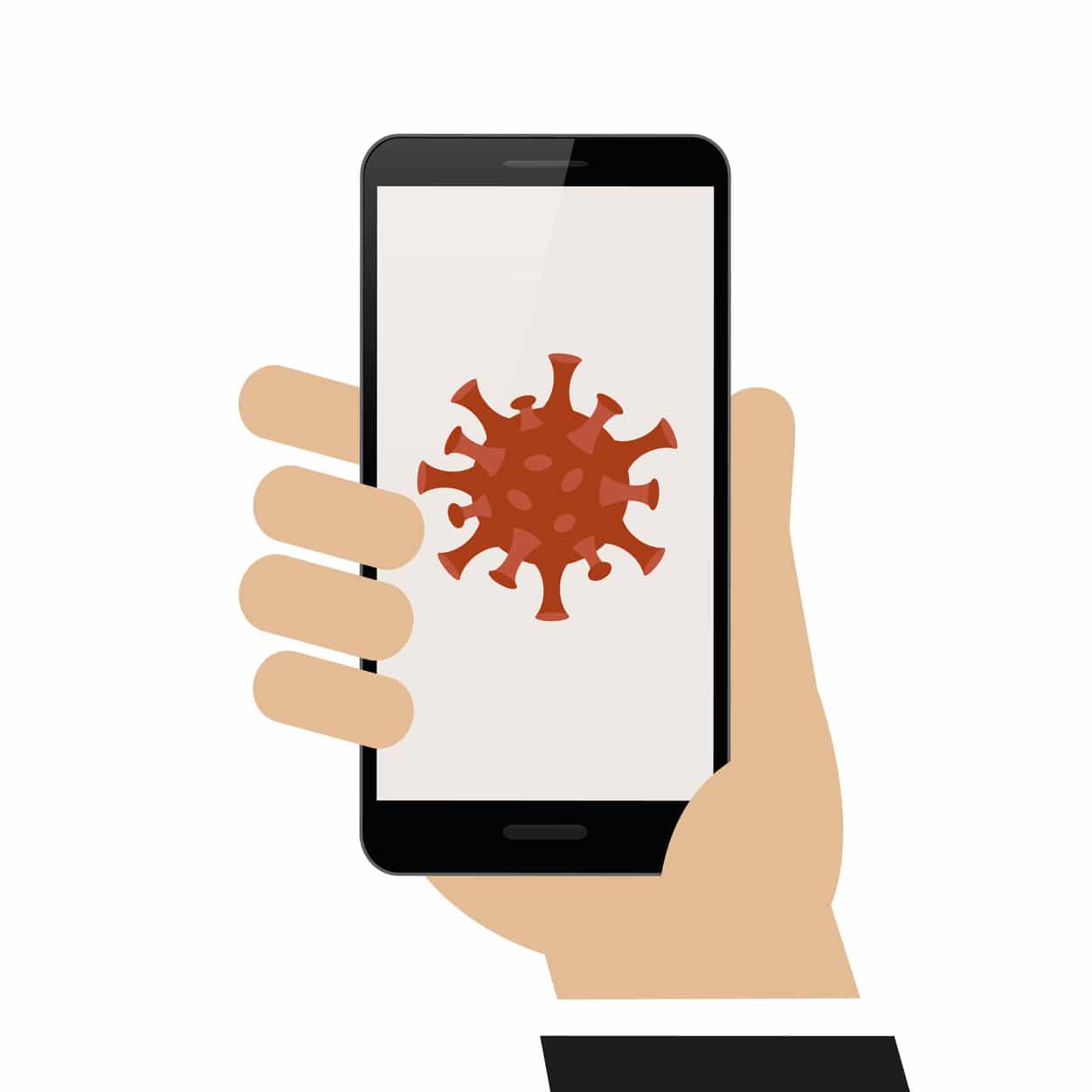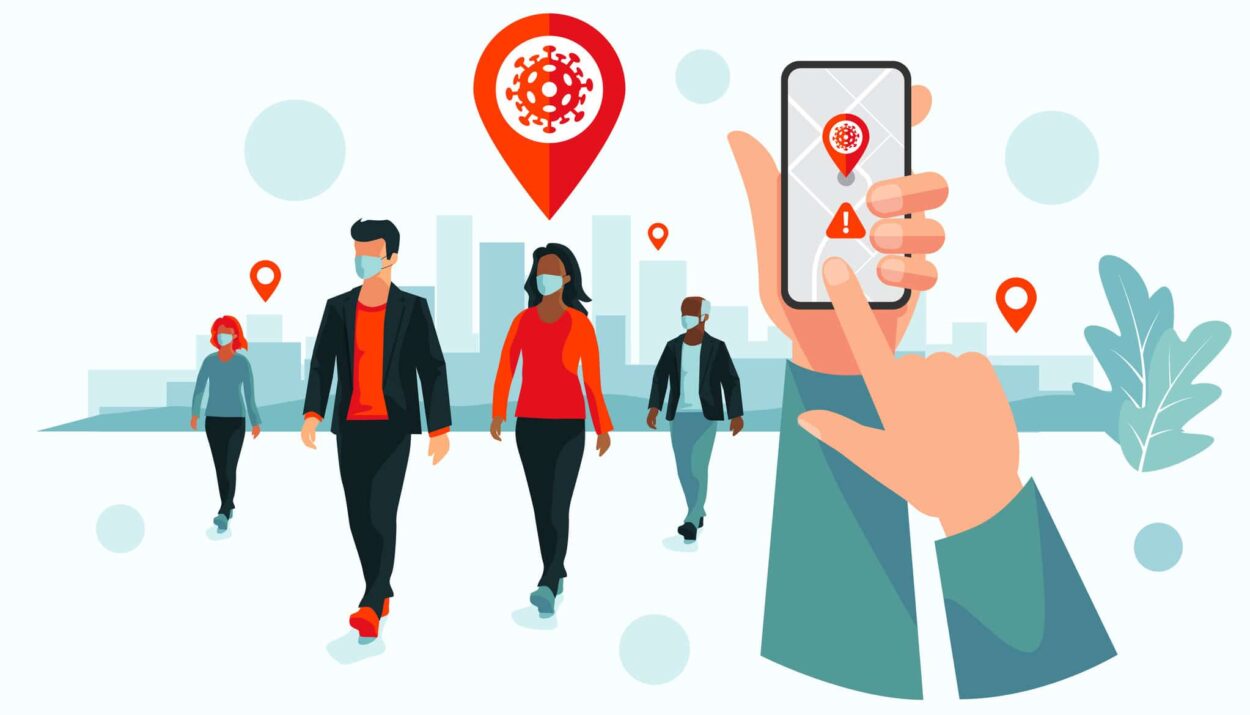Jasmine Birtles
Your money-making expert. Financial journalist, TV and radio personality.


Scams used to be fairly easy to spot. Old mobile phone scams meant if you replied to a text, your credit was drained by thieves. Email scams, now sophisticated, still have red flags that highlight it’s not legitimate. But now there’s a new problem: the Track and Trace Scam.
As the Government rolls out the COVID-19 Track and Trace scheme, it’s becoming increasingly clear that opportunities exist for scammers to take advantage of the system. So, how do you spot the Track and Trace scammers – and how do you deal with them?

The current coronavirus craziness is a prime target for hackers and scammers. They’re taking advantage of the uncertainty of our times, and especially the lack of clarity on lockdown regulations.
We’ve seen a range of scams arise already:
Under strict lockdown rules, people weren’t supposed to leave their home unless absolutely necessary. Scammers jumped on this: they sent text messages seemingly from the Government. One example said:
“We would like to inform you that you have been recorded as leaving your home on 3 occasions yesterday. A fine of £35 has been added to your gov.uk account. For further information please visit gov.uk/coronavirus-penalty-payment-tracking. Protect the NHS. Save Lives.”
This is a very savvy example. The link LOOKS like an official link. The wording is accurate, and uses the Government slogan to reinforce the idea it’s an official message. However, the link (if you clicked on it) would take you to a fake website. You’d be asked to enter your personal data to verify your account – and this is how scammers steal your information for identity fraud.
Many people reported emails and text messages purportedly from either the Government directly, or their local authority. These messages were the opposite of the lockdown scam: instead of warning you that you had to PAY money, they said you were due to BE PAID cash.
The messages usually say something like: “The Government has authorised a rebate of £420 to every citizen due to the coronavirus. Click here to claim your rebate.”
Again, when you click the link, you’re asked for your bank details and personal information. Remember: the Government has NOT confirmed any type of universal payout: you must actively apply for any of the grant or loan schemes available.

The new, big, scam is to do with the Track and Trace app. The official app theoretically reduces the spread of coronavirus. If you’ve got symptoms of the virus, you log the details of everyone you’ve been in contact with for more than 15 minutes over the past 14 days. Contact tracers then get in touch with these people, who need to self-isolate themselves for 14 days, too.
Downloading and using the app – after a successful trial on the Isle of Wight – goes like this:
With everything the app does, it’s a clear target for scammers. It’s still in the early stages – and open to misuse. Very few people have been legitimately alerted by the app to self-isolate (to date). So, telling the differences between the app and a scam is tricky.
Scammers have, however, been sending a message that says:
“Someone who came into contact with you tested positive or has shown symptoms for COVID-19 & recommends you self-isolate / get tested. More at COVID-19anon.com/alert”.
If you get this, don’t visit the link! It’s definitely a scam.
Official Contact Tracers use the app to call people, too. These people will call anyone who doesn’t have the app (but whose data is supplied by the person with suspected COVID-19) to inform them they should self-isolate for 14 days.
However, scammers have ALREADY been calling up and imitating Contact Tracers. They do this to get more of your personal information AND those of your friends and family who you’ve been in touch with recently. This is a huge data-mining exercise that’s ripe for mass identity fraud.
Dr Jenny Harries, at Sunday’s press briefing at Downing Street, said calls are “very obvious.” The Department for Health has said NHS Test and Trace employees will:
They may also ask people to sign into the NHS contact-tracing website, request a full name and date of birth to confirm a person’s identity, and ask for a postcode to offer support while self-isolating.
You have to remember, The Health Department will never ask you to dial a premium rate phone number, ask for social media identities or log-in details of any person or their contacts, or ask you to make any form of payment or purchase
It’s really easy to get hoodwinked by a scam. They’re everywhere! Don’t feel bad if you think you’ve been the victim of a scam. Report it to Action Fraud – and where money is stolen, to your local police.
Things to look out for to avoid scams include:
If you’re worried about being caught in scams – or think a loved one may be susceptible – check out the most sophisticated scams of 2020 to prepare yourself with more info!
To find out more about protecting yourself from all types of fraud, read these articles next:

I love this!
A good clear article.
So many unscrupulous people out there. Appreciate the information.